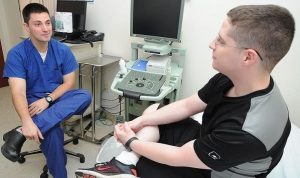Going to university is not just about education. It’s a pivotal time in your life which you try to make the most of by meeting and making new friends and sharing your interests with people from all over the world. It can also be a time when massive mistakes are made if you do not take the right precautions.

Quarter
25% of first-year students contract an STI during their first year in university – that is one student in every four. A survey carried out by The Student Room found that 15% of students under the age of 25 admitted to having unsafe sex with two or more partners during their first year, and 63% admitting to having unprotected sex.
Condoms
Fifty per cent of students who were questioned about sex admitted that they never used condoms when engaging in sexual activity – a very worrying statistic. Condoms will not only stop unwanted pregnancies but also prevent the spreading of unwanted infections. They are available for free from your GP and most health clinics. Try different types to see which best suits you and make sure you use them properly. Never go out without one and keep a stock in your room.

Testing
Not all STIs show any symptoms, but couples should always get tested before starting a sexual relationship. Chlamydia and gonorrhoea can be detected after two weeks, HIV after four weeks and syphilis after six weeks. Home testing kits are available online for all the above and all kits give information on sexual health and are returned in the post. The treatment options for STIs will depend on the type of infection that you have and the stage it is at. All of the treatments available have been through extensive testing and trials where Patient Recruitment Services such as www.richmondpharmacology.com/specialist-services/patient-recruitment, where appropriate participants will have been selected to take part in the trials.
Common
The most common infections found in young heterosexuals are Chlamydia, gonorrhoea, genital warts and herpes. In men who sleep with men, HIV and syphilis are the most common, and bacterial vaginosis and HPV occur in women who sleep with women.
Drinking
Students are also known for drinking too much alcohol whilst out of their parents’ sight – be aware that you can lose your judgement and take risks during this time. There is also the increased risk of sexual assault whilst in a vulnerable state, so make sure you stay in control.
If you don’t want to be part of the 25% statistic, keep safe, use protection and get tested.